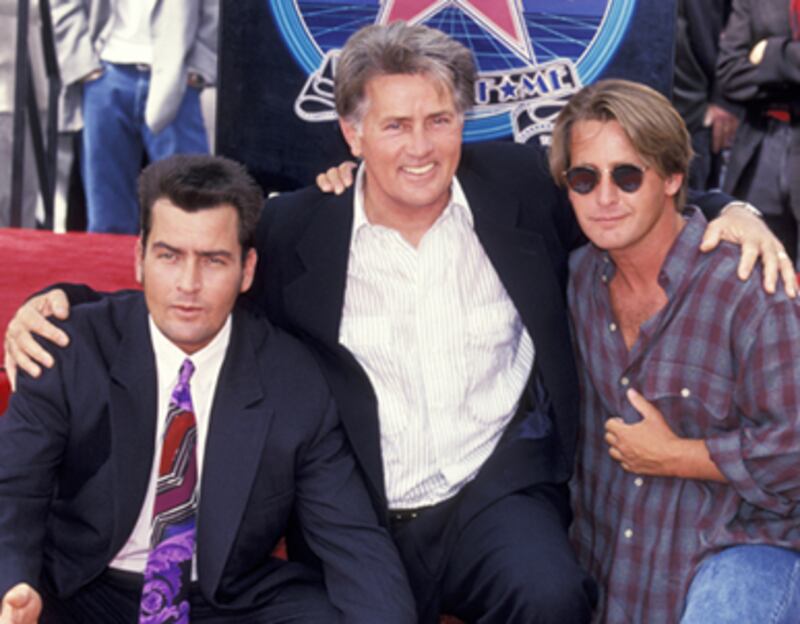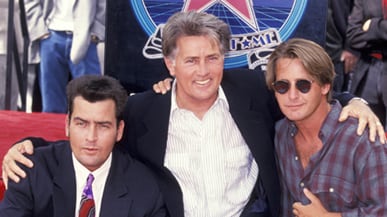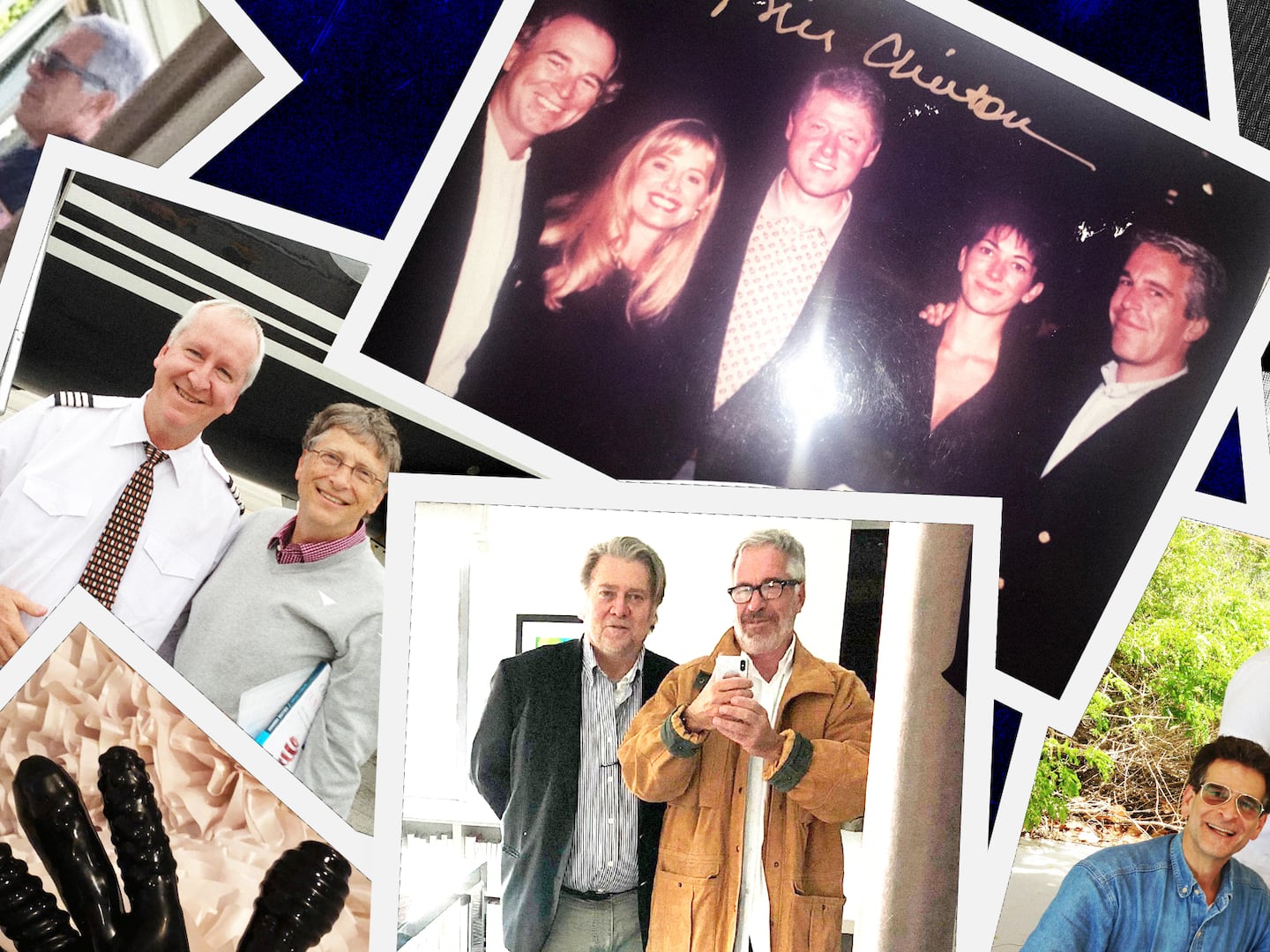Being part of a much-loved Hollywood dynasty has helped Charlie Sheen survive and prosper despite years of bad behavior. But how long will his family keep rallying behind him? Plus, who was the worst guest at the Plaza— Charlie Sheen or Eloise?
Almost anyone who has seen the inside of a 12-step meeting knows that addiction can take people to all sorts of terrible places and lead to all sorts of terrible behavior.
How else to explain Charlie Sheen’s actions at the Plaza Hotel on Monday night, where police reportedly found him naked and incoherent, the room trashed, a prostitute locked in the bathroom?
Since then, his press agent has claimed that Sheen merely had an allergic reaction to a medication, an account that might be more believable were it not for Sheen’s extensive experience with Bolivian marching powder over the years, as well as accounts from police sources who said that’s just what was going up his nose Monday night.
For the last two decades, Sheen has been arguably the worst-behaved celebrity in Hollywood, spending millions of dollars on thousands of ladies of the night, assaulting numerous girlfriends and wives, and flitting in and out of rehab as if it’s nothing more significant than a roundtrip to the neighborhood ATM. Not even Mel Gibson has done such an exquisite job illustrating what havoc a rich, addicted, and entitled person can wreak on the world.
Gloria Allred is the attorney to Brittany Ashland, an ex-girlfriend of Sheen’s who accused him in 1997 of knocking her unconscious on a marble floor and threatening to kill her. More recently, Allred served as counsel to a police officer who was involved in Sheen’s arrest last Christmas, when Sheen allegedly held his wife, Brooke Mueller, at knifepoint.
“What is it going to take to get him sent to jail?” Allred says. “I was there in the courtroom when he was sentenced. He had a smile and a smirk on his face when he didn’t get jail time. It was a disgrace. This was not a fictional Hollywood movie. It was a serious, real-life situation, and it should carry serious, real-life consequences for the perpetrator.” (Other highlights from Sheen’s past include shooting his then-fiancée, Kelly Preston, in the arm in 1990 and reportedly keeping a gun under his coffee table during the later years of his marriage to Denise Richards.)
In Hollywood today, Sheen is described as a man with few friends and allies, yet he is laughing his way to the bank—reportedly earning well above $1 million per episode of his comedy Two and a Half Men.
Getting that money was a drama of epic proportions. A couple of years ago, Sheen was already making $850,000 an episode for the hit show, but industry sources say he wanted to double that, and threatened to walk away if his demands were not met. “It was a huge nightmare for everyone involved,” says one source close to the negotiations.
Gallery: The Most Arrested Celebrity

Fattening his wallet even more, he’s no longer paying an agent. More than a year ago, he told his reps at WME he would no longer pony up his 10 percent fee and also demanded a piece of the agency’s packaging fee (on a hit show, that cut can range from $20,000 to $60,000 an episode).
WME’s response to the unprecedented request? Buh-bye.
Shortly after that, numerous pieces in the trades said he was likely to be signing with top agency CAA, but a year later that has yet to happen, raising questions about whether Sheen is bankable in anything other than his already established show.
If Sheen has survived and prospered this long, it’s both because he’s part of a much loved Hollywood dynasty—his father is actor Martin Sheen and his brother is actor-director Emilio Estevez—and because he’s had a willingness to poke fun at himself onscreen, playing off of his caddish, shady persona. On Spin City, he was cast as a man named Charlie who drinks too much, gambles compulsively, and relentlessly sleeps around. On Two and a Half Men, he was cast as a man named Charlie who drinks too much, gambles compulsively, and relentlessly sleeps around. It’s almost as if he’s succeeded by convincing the world that he’s a clown rather than a monster.
Born in 1965 in New York City, Carlos Irwin Estevez was the third of Martin’s four children with artist Janet Templeton. (Sheen is a family stage name.) Like his wayward son, Martin Sheen also struggled with addiction before turning to his Catholicism for help. But the family remained tight-knit, and the kids frequently visited their father on set when he made films like Apocalypse Now. At 9, Charlie even made a brief appearance with his father in the television movie The Execution of Private Slovik.
As an adult, Charlie’s co-starred in numerous titles with Emilio, among them Young Guns and Men at Work (which Estevez directed). Brother Ramon, who had small roles in films in the ‘80s and ‘90s, runs his dad’s production company, Estevez Sheen productions. Sister Renée is also an actress and appeared frequently on The West Wing, the television show on which Martin played the president of the United States.
When times got tough, the family always rallied.
In the late ’90s, during one of Charlie Sheen’s many legal scrapes, his father asked the public to pray for his troubled son.
Then a few years back, a writer at the Los Angeles Times wrote something slightly derisive about Emilio Estevez’s Bobby Kennedy biopic, and both brothers sent her emails telling her to “go fuck [her]self.” Said Sheen at the time: “It must suck watching people do things you can only fantasize about. To spend your entire life watching the other kids play, knowing deep in your heart your parents LIED to you when they promised, ‘You can be whatever you want, if you just follow your dreams.’”
Last February, just two weeks after he’d been charged with a felony for his alleged abuse of Mueller, Sheen and his three siblings showed up for the premiere of their dad’s play, The Subject Was Roses, at the Mark Taper in Los Angeles.
Still, whatever demons Sheen struggled with, he mostly knew how to behave on set. “When it’s business, and he’s working, it’s all fine,” says an industry source. “It’s his personal life that’s nuts.”
And perversely, the provenance of his victims may have helped to inoculate him from outrage. Jon Cryer, Sheen’s co-star on Two and a Half Men, appeared with him in Hot Shots! During a promotional interview for the movie, he told Movieline: “Charlie’s amazing. He’d show up an hour late, in a convertible with a porn star in the back seat, yet still—wham!—he’d hit his marks, hit his lines and get everything right on the first take. Then—wham!—he’d be gone, off to warm up some porn star.”
From time to time, there were periods of sobriety. The industry source says that before the domestic violence explosion with Mueller last fall, “he was very straight and narrow. He would not leave his house, he’d just watch baseball. He wouldn’t go out. It was really weird. There was a long period of inactivity.” The source also suggests that Mueller, his estranged wife, may have been part of the problem. “Something changed…Brooke wanted to go out more. She was young and beautiful and wanted to go out and party.”
“When it’s business, and he’s working, it’s all fine,” says an industry source. “It’s his personal life that’s nuts.”
But of course, that’s like blaming a woman who wore a miniskirt for getting raped rather than focusing one’s anger on the gang of thugs who raped her.
Says Allred: “Unfortunately, with violence against women, people don’t recognize it as serious. Charlie Sheen has a pattern of violence, there are real human beings who are in danger because of him, but there are a lot of enablers in his life, people who have an economic stake in saying yes to whatever he wants. This is a man who needs tough love in a big way.”
Jacob Bernstein is a senior reporter at The Daily Beast. Previously, he was a features writer at WWD and W Magazine. He has also written for New York magazine, Paper, and The Huffington Post.
Nicole LaPorte is the senior West Coast reporter for The Daily Beast and the author of The Men Who Would Be King: An Almost Epic Tale of Moguls, Movies, and a Company Called DreamWorks.







